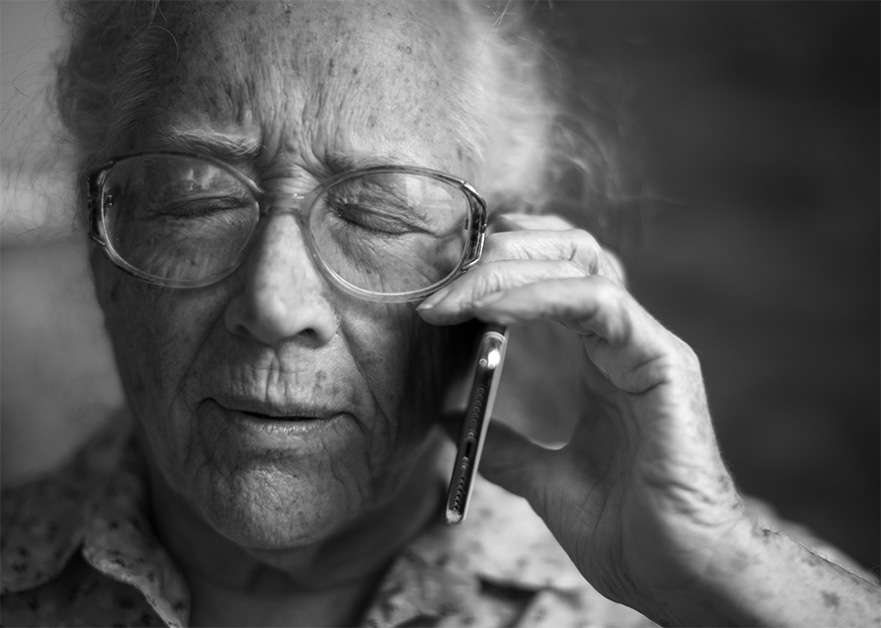(Translated by Google) Good service and kindness Edith is a very kind person (Original) Buena atención y amabilidad Edith es una persona muy amable
Read More
Is an Alzheimer's Vaccine Next?
Posted: Nov 29th, 2018 at 12:00AM

The Alzheimer's Association says 5.7 million Americans are living with the disease. By 2050, that number is expected to go up to almost 14 million. It’s the sixth leading cause of death in the United States, and it kills more people than breast cancer and prostate cancer combined. With Alzheimer's being so pervasive and so deadly, many years and probably billions of dollars have gone into finding an answer. Now, we might have one: science has discovered an Alzheimer's vaccine.
What is Alzheimer's Disease?
The Alzheimer's Association defines the disease as "a type of dementia that causes problems with memory, thinking and behavior. Symptoms usually develop slowly and get worse over time, becoming severe enough to interfere with daily tasks." Important to note is that Alzheimer's is not simply aging. While old age is the single biggest risk, the disease is about so much more than just growing old.
Also important to note is that people can start to experience Alzheimer's as early as their 40s. In fact, Scientific American says half a million people in the United States have early-onset dementia.
Because Alzheimer's most often starts to affect the part of the brain associated with learning first, the most common early sign of the disease is trouble remembering new information. However, disorientation, mood changes, severe confusion, and difficulty with speaking, walking, and even swallowing often come later on down the road.
It's not only the individuals with the disease who suffer, either. It’s also the friends and family who care for them. The Alzheimer's Association says 16.1 million Americans care for those with Alzheimer's or another type of dementia, unpaid. Last year, this added up to 18.4 billion hours of care, worth more than $232 billion.
As of right now, there's no known cure. The best medicine has been able to do is treat symptoms and temporarily slow the worsening of the disease. However, all of that could finally be changing in the near future.

The Alzheimer's Vaccine
According to Forbes, the discovery comes out of the University of Texas Southwestern Medical Center. After a decade of research, medical experts say they've developed a vaccine that could prepare the body to fight off Alzheimer's before it starts to shut down the brain. They've tried the vaccine on mice, as well as rabbits and monkeys. Testing on humans hasn't started yet, but they hope to begin soon.
What makes this vaccine so promising is that for the first time, it's targeting both amyloid-containing plaques and tau proteins, says Forbes. These are considered two huge factors for definitively identifying Alzheimer's disease in an individual.
The vaccine works the way all vaccines work: by teaching the body's immune system to fight the disease and stop its compounds from accumulating in the brain. The vaccine accomplishes this by carrying DNA from Alzheimer's proteins. In theory, doctors would determine when exactly to give the vaccine to people by conducting PET scans to look for signs that Alzheimer's could be in their future.
If all goes according to plans, this vaccine could cut dementia cases in half.
Why Has Alzheimer's Been So Powerful?
Seeing how serious this disease is might make you wonder why we haven’t done more to fix it already. Part of the problem has undoubtedly been that without having a way to protect people from it, like we can with other diseases, the most we’ve been able to do is react to the symptoms as they start to pop up.

Why? Because for a long time, it was incredibly challenging — if possible at all — to detect any biomarkers of Alzheimer's — like the aforementioned plaques and tau protein. The disease is still largely a mystery to science, and we don't fully understand its underlying biology.
It makes it even harder considering Alzheimer's can worsen very slowly over time. Sometimes, symptoms aren't addressed until the brain has undergone significant changes. To make matters even more confusing, Alzheimer's might be present with other kinds of dementia, making it difficult to isolate the varying factors.
Another problem is that out of the drugs explored to fight Alzheimer's thus far, there hasn't been much success at all. Scientific American says Alzheimer's has one of the highest failure rates when it comes to drug candidates: 99.6%. (For reference, cancer drugs have an 81% failure rate.) One study found that out of 244 compounds in 413 clinical trials between 2002 and 2012, only one was approved.
The road has been so rocky that in the beginning of 2018, Pfizer said it was going to stop researching developing drugs to treat Alzheimer's, as the last decade had been filled with too many costly failures.
The challenge with using drugs to treat Alzheimer’s lies in the blood-brain barrier, which works to protect the brain from pathogens and toxins that might be in our blood. However, when it keeps these pathogens and toxins out, it also keeps many drugs out, too.
Progress with research has been painfully slow, clinical trials are expensive, and early detection methods have been severely lacking.

Could this vaccine finally be the answer we've been looking for? Possibly. But what can we do in the meantime?
Maintaining a Healthy Lifestyle is Crucial
Murali Doraiswamy, Senior Fellow at Duke's Center for the Study of Aging and head of biological psychiatry at Duke University, told Scientific American how we can best protect ourselves for now.
"Unfortunately, there isn't yet a magic bullet for prevention. Obesity, smoking, lack of physical activity, high blood pressure, and high cholesterol are some of the culprits. So keeping these under control is crucial.
Depression is another risk factor for memory loss, so managing stress and staying socially connected is also important. B vitamins may prevent dementia in those who are deficient and there are some simple blood tests that can detect this. For the vast majority of people, however, there are no prescription medications that have been proven to prevent dementia. This means that a brain-healthy lifestyle is really our best bet for delaying the onset of memory loss."
Stay healthy, help fight disease, and protect those around you by keeping current on your vaccines. Contact e7 Health today.

OMG, so e7 is one-of-a-kind in Vegas. My husband needed a TB Skin Test and I was able to book for the next hour. The staff actually answers the phone, right away. They are kind and nice. Upon arrival, at e7 Windmill location, the receptionist (who's name I do not have) was so kind, nice, and caring. She's a gem. During our brief wait for my husband's appointment, I witnessed the interaction between staff members and also, their clients. It's amazing that the entire, big e7 Team loves each other and what they do. You do not see this anywhere else. The team's interaction was magical. AND then how each staff member interacts with their patient, well... just unique. My husband had Alia, who definitely folded her Angel Wings in to fit in to the treatment room. What an amazing being. So patient, as my husband was on a walker and not so ambulatory. She explained all so clearly and easily. Truly, we have never experienced such CARE not just in Vegas, but anywhere. She also went above-and-beyond for us as to the next step. e7 scared me at first online, but now, they are my Go To and I have already recommended to many. God bless Alia and all. The Team truly LOVE what they do and it shows.
Read More

















